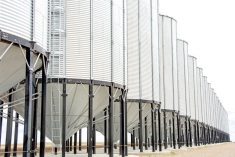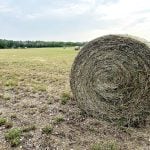CNS Canada — Statistics Canada’s latest Farm Product Price Index marks a year of annual declines, predominantly led by the cattle sector.
The whims of the market are one source of losses, but two producer group heads say the data call attention to the country’s processing sector.
Year-over-year declines in Canada’s Farm Product Price Index started in December 2015, according to StatsCan data.
That trend continued into December 2016, when the index decreased 0.7 per cent in December, compared with the same month a year earlier, primarily due to lower cattle prices, StatsCan said in a report Monday.
Read Also

U.S. livestock: Feeder cattle hit contract highs on tight supply
Chicago | Reuters – All Chicago Mercantile Exchange feeder cattle futures and most live cattle futures hit contract highs on…
“The interesting thing about farming is it’s not just your farm, it’s the rest of the world,” said Dan Mazier, president of Manitoba farm group Keystone Agricultural Producers.
Elements of price depression are subject to the nature of the market. As reports come in that crop conditions are favourable, the more prices come under pressure. Mazier named South America as one competing growing region putting pressure on the market right now.
On the upside, as planting picks up again in North America, end-users will start buying acres, which could underpin values.
The livestock sector led the way in declines on the price index in December 2016, with cattle and calves’ prices down close to 11 per cent from those in the same time frame a year prior.
“I find that’s always troubling, or concerning when you see that kind of stuff happening,” Mazier said.
“With the cattle, they’re not just put on in two months or three months, it’s a year and a half and you’ve got a mature animal that you’re going to go and sell,” he said.
Cattle prices have felt pressure from regular market fundamentals, said Brian Perillat, manager and senior analyst at Canfax, a cattle marketing arm of the Canadian Cattlemen’s Association.
He also named high North American supplies of cattle, poultry and pork as bearish factors keeping a lid on values.
National Farmers Union president Jan Slomp, pointing to an NFU study, said losses in the cattle sector stem from Canada having too few packers. “They control too much of the price,” he said.
A 2008 report from the NFU said prices for farmers are kept artificially low, as packers own vast feedlot herds, giving them the ability to manipulate prices paid to farmers who raise cattle.
But at the same time, a limited number of packers in Canada means ranchers sometimes opt to sell product into the U.S.
“Which, if you’re getting paid in American dollars, the exchange should actually be treating you well,” Mazier said.
A large number of packers are limited to Alberta, he added.
“I think that’s an Achilles heel for Canada in general, you can look at not only beef, but sheep as another one, or even pork,” Mazier said.
The industry can’t get enough animals into the facilities for them to run at 100 per cent — a problem that spans across multiple sectors.
“I think whatever livestock, industry or commodity you’re looking at, there are challenges to get more processing going,” he said.
The focus for the government should be to get more processing happening in Manitoba and Canada, Mazier said, though both levels have taken steps.
Earlier in the month, Manitoba’s agriculture industry received more than $1.5 million in funding to be divvied up by eight different research projects. Part of the funding is to be used to support grain production and processing.
“We’re trying to get more processing going in Canada, and that’s good to see. I think if we do focus on that it’ll bode well for all our livestock industries,” Mazier said.
“We’ve needed that medium-size and small livestock processing enhanced and modernized for many, many years,” he said. “The conversation is long overdue.”
— Jade Markus writes for Commodity News Service Canada, a Winnipeg company specializing in grain and commodity market reporting.















